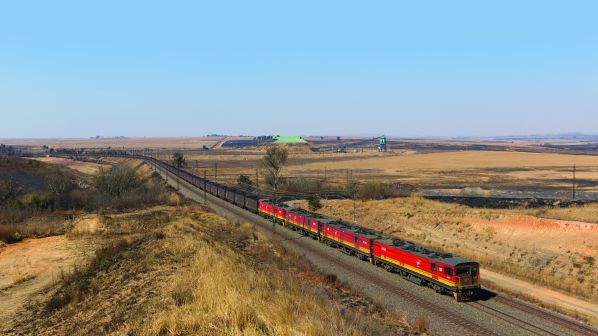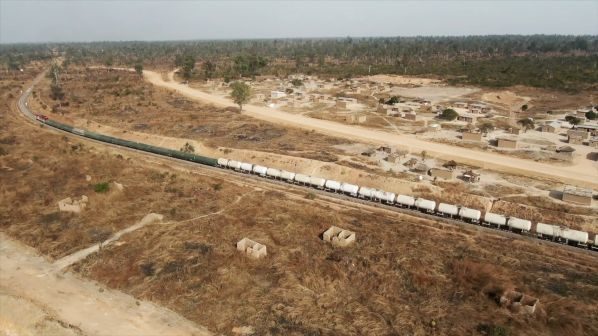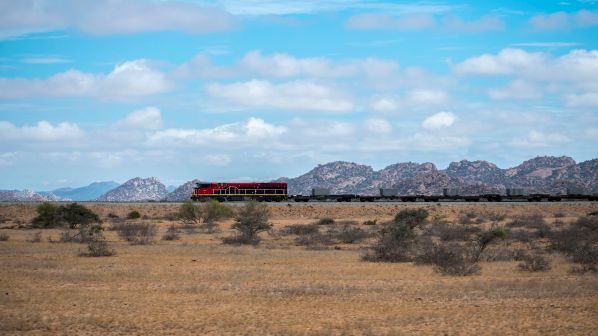A ceremony has been held in Lobito, Angola, to mark the official transfer of the concession to operate and offer logistical support for the Lobito corridor to the Lobito Atlantic Railway consortium of Trafigura, Mota-Engil, and Vecturis.
The European consortium was confirmed as the preferred bidder in July 2022 for the 30-year concession and signed the agreement in November.
The consortium will be responsible for the operation, management and maintenance of the 1067mm-gauge railway to move freight including minerals, liquids and gases. The railway runs for 1344km from Lobito port to Luau in eastern Angola, close to the border with the Democratic Republic of Congo, where the line continues for a further 400km to Kolwezi, at the heart of the country’s copper belt. It will also connect with Democratic Republic of Congo National Railways’ (SNCC) network.
The consortium plans to invest $US 455m in Angola and up to $US 100m in the DRC. Investment will include the procurement of 35 locomotives and 1555 wagons for use in Angola. This will add to the 25 locomotives available to the concessionaire from an order for 100 2.2MW C30ACi diesel locomotives ordered from GE (now Wabtec) in 2015. The consortium will also invest significantly in training and skills and will make use of existing training centres in Huambo and Lobito.
There is an option to extend the contract by a further 20 years should the concessionaire commit to building a 200km line from Luacano to Jimbe, Zambia.
“We see the Lobito rail corridor as a partnership between the private and public sectors,” says Mr Jeremy Weir, Trafigura CEO who was speaking on behalf of the Lobito Atlantic Railway. “A partnership of three countries - Angola, the DRC and Zambia and of three companies - Trafigura, Vecturis and Mota-Engil.
“Together, we have a shared vision of creating the most important logistics corridor in sub-Saharan Africa. Our project will not only create a western route to market for goods and materials. We believe the Lobito rail corridor has huge potential to boost the development of sectors along the line including heavy industry, agriculture and mining, creating new jobs and new opportunities.”
Trafigura and Mota-Engil both hold 49.5% stakes in the consortium and Vecturis 1%, reflecting their financial contribution. Vecturis will receive a fee for operating the railway while Mota-Engil will be responsible for infrastructure maintenance as well as execution of any new works on the line. Trafigura will work on retailing freight services.
Under the contract, the concessionaire is required to transport 1677 million tonnes of freight per year by the fifth year of the concession. This will rise to 2982.31 million tonnes by year 10, while 4979.23 million is the target for both year 20 and year 30 of the agreement. Benguela Railway (CFB) will continue to operate passenger services on the line, which was upgraded by a Chinese consortium under a project completed in 2015.
Angolan president, Mr João Manuel Gonçalves Lourenço, says the project will help to boost intra-African exports, which currently account for only 14% of total global exports. “Figures like this show us the importance and necessity of putting our infrastructure at the service of the economic and social development of our countries and our continent,” Lourenço says. “And we are doing so with vision, purpose and clearly defined objectives.”



